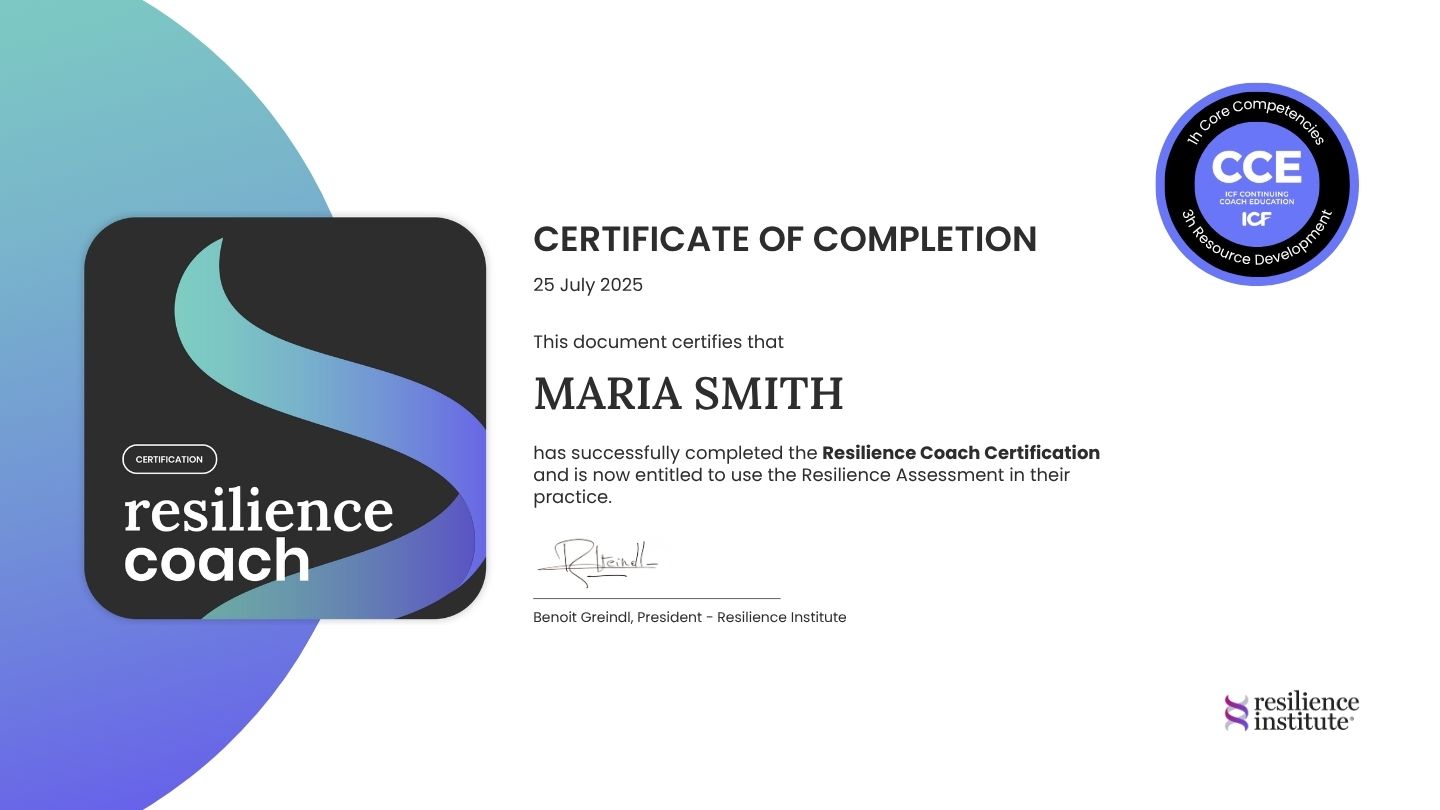
How Can Your Organisation Become Sustainable?
At Resilience Institute, we are committed to helping humanity achieve a more resilient, more sustainable planet. As part of our commitment, we are for instance in the midst of our BCorp certification process. Given our expertise, serving large organisations globally since two decades, and our DNA, delivering data-driven and scientifically sound offerings, we think however that our most valuable contribution is to research how resilience can advance sustainable development.
We are preparing to publish a special report on this topic in autumn and are excited to share a first research project: Éric Bolliger has joined us for his Master thesis at Enterprise for Society Center (E4S) in Lausanne, Switzerland, a joint initiative by EPFL, University of Lausanne and IMD.
For his research on the connection between resilience and sustainability efforts in organisations, we need your help and invite you to fill out the survey linked below (5-10 minutes):
Sustainability is a business imperative…
No matter where we look, the signs of our unsustainable ways of living, working and producing as humanity are obvious. The science is clear: Research on climate change, biodiversity loss or plastic pollution show us clearly that we harm our planet in a profound way. Additionally, social sustainability topics such as income inequality, inclusion and diversity, or hunger pose the global community in front of big challenges.
With all these problems ahead, it is clear that business as usual is no longer a possibility. Sustainability has become a business imperative and many organisations thus strive to incorporate sustainable development. Net zero targets are nearly a standard today and other goals for 2030 or 2050 make the news every other day: For example, over 5’300 companies have submitted net zero targets to the SBTi, the Science Based Targets initiative. [1]
Moreover, organisations are increasingly adopting the Sustainable Development Goal (SDG) agenda from the United Nations as a framework to report on their sustainability contributions. The SDGs set the path on how sustainable development should look like, backed by all 193 Member States of the UN. As a reminder, sustainable development is a «development that meets the needs of the present without compromising the ability of future generations to meet their own needs». [2]
… but not a business reality
Unfortunately, the gap between what organisations promise to achieve and actually put in place is startling. In a very recent study looking at the alignment between companies and the SDGs, Williams, Haack and Haanaes (2023) come to this conclusion. Although companies are vocal about and report on their contributions to the SDG agenda, they have failed to back up their claims with actions. Williams, Haack and Haanaes describe this mismatch in the following way: «Their underwhelming engagement looks more like SDG washing». [3] Not only researchers have gained certainty on the lack of concrete actions, people in the organisations know it themselves: In a survey conducted by Google Cloud from early 2022, 58% of more than 1’400 executives say that their organisation is guilty from greenwashing, overstating its sustainability impact. [4]
Hence, whilst our awareness concerning sustainability and especially environmental topics is growing, actions lag behind. This phenomenon can be described as a say-do-gap, stating basically that our intentions, what we say, and our actions, what we really do, don’t match in some cases. In earlier research this behavioural gap was described as the value action gap (VAG). In a seminal paper, Blake (1999) described the VAG and identified three barriers between our concerns and our actions: individuality, responsibility and practicality. [5]
Is resilience the key to sustainability?
Most organisations talk the talk, but only a few walk the walk – how comes? CB Bhattacharya has lead interesting research on this topic and concluded that «sustainability can be advanced through tapping into three basic human motivations: efficacy, self-identity and belonging». [6] In his book “Small Actions, Big Difference”, he describes how psychological ownership and sustainability interact, and how to connect both.
Basic human motivations are also what drives us at Resilience Institute. Thus, it is evident that with our long history of consulting large organisations across the globe, connecting sustainability efforts in business with human elements lies at the heart of our mission. Moreover, since we believe as well in solid science, we are on our path to research more closely the interplays between resilient individuals, resilient organisations and lastly a resilient planet.
We want to discover what leads to the say-do gap in organisations and most importantly, what role resilience plays in closing the gap. Éric Bolliger has thus joined us to conduct preliminary research on the topic for his Master thesis at Enterprise for Society Center (E4S) in Lausanne, Switzerland, a joint initiative by EPFL, University of Lausanne and IMD.
For his research, we need your help and invite you to fill out the survey linked below. You help us understand how we can better address sustainability concerns within companies and more easily navigate the narrow path towards sustainable development.
[1] https://sciencebasedtargets.org/companies-taking-action, visited on 28.06.2023
[2] United Nations General Assembly (1987). Report of the World Commission on Environment and Development: Our Common Future. https://sustainabledevelopment.un.org/content/documents/5987our-common-future.pdf
[3] Williams, A., Haack, P., & Haanaes, K. (2023). Putting the SDGs Back on Track. Stanford Social Innovation Review, 21(3), 40–47. https://doi.org/10.48558/0DPW-ZM76
[4] https://services.google.com/fh/files/misc/google_cloud_cxo_sustainability_survey_final.pdf
[5] James Blake (1999) Overcoming the ‘value‐action gap’ in environmentalpolicy: Tensions between national policy and local experience, Local Environment, 4:3, 257-278,DOI: 10.1080/13549839908725599
[6] Bhattacharya, C. (2018). From bystanders to owners: marketingsustainability ownership to stakeholders to secure our futurewell-being. Handbook of Advances in Marketing in an Era of Disruptions: Essays in Honour of Jagdish N. Sheth, 106.

